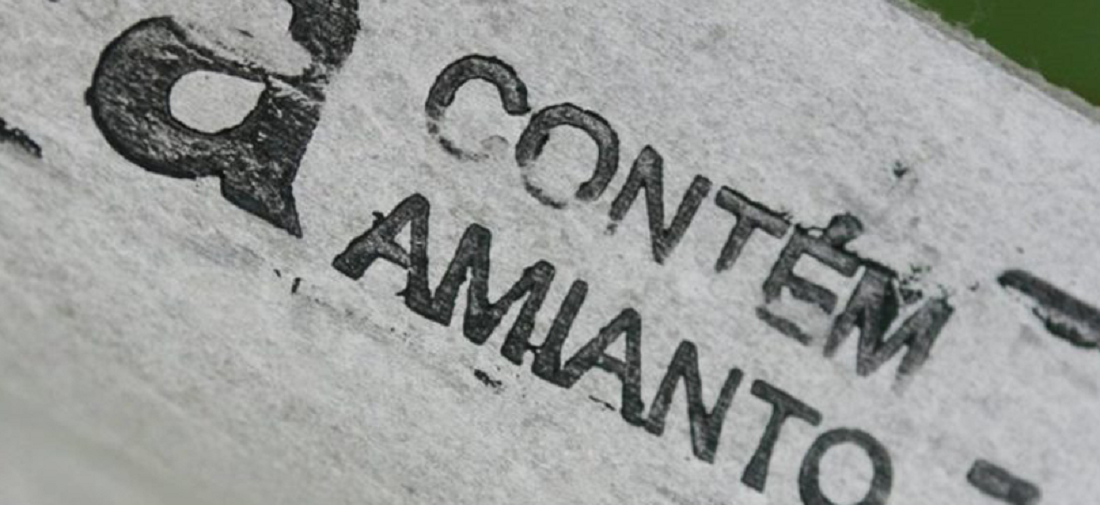
Ukraine war boosts asbestos exports from Brazil
Jun, 03, 2024 Posted by Gabriel MalheirosWeek 202523
Recently, the United States took new steps to ban asbestos, a move already undertaken by over 60 nations. Meanwhile, Brazil finds itself in a legal imbroglio as the use of asbestos is prohibited domestically, yet its export persists and expands.
One of the driving factors behind this is the conflict in Ukraine, prompting countries to seek alternatives to Russia, the world’s largest asbestos exporter. In this context, associations and experts argue that asbestos poses risks throughout its supply chain, advocating for a complete ban, while export revenues continue to surge, bolstering the exporting region’s economy.
In 2017, the Federal Supreme Court (STF) in Brazil made the decision to ban the extraction, production, use, and sale of chrysotile asbestos, deeming it carcinogenic. Consequently, the Belgian company Eternit, operating under Sama, ceased its operations in the city of Minaçu, located in the northern region of Goiás, where Brazilian production originates. Minaçu boasts the third-largest production of chrysotile asbestos globally.
However, in 2019, the Legislative Assembly of Goiás passed Law No. 20,514, allowing activities in the state for exclusive export purposes, leading to the resumption of activities. In November 2022, in response to a request from the Federal Public Ministry (MPF), the Superior Court of Justice (STJ) ordered the suspension of exploration until the constitutionality of the legislation was assessed. In January 2023, the STF permitted exploration to continue until a final resolution was reached.
Fernanda Giannasi, founder of the Brazilian Association of Those Exposed by Asbestos (ABREA), highlights that the issue has slipped off the agenda. “The topic is no longer a priority, and the situation is dire. We are concerned about the timeline, as we do not know when the process will conclude,” she laments.
Amid the legal dispute, the small town of Minaçu, with approximately 30 thousand inhabitants, has experienced a significant surge in revenue from asbestos exports in recent years. According to Comex data, there was an over 55% increase between 2021 (US$61.4 million) and 2022 (US$96.6 million). In 2023, the value remained at a similar level, totaling US$95.9 million.
“The conflict in Ukraine prompted many countries to secure their asbestos supply. With restrictions on exports from Russia, many sought alternative exporters, such as Brazil,” says Giannasi.
The following chart displays Brazil’s exports of asbestos, measured in TEUs, from Jan 2021 to Apr 2024. The data was derived from DataLiner.
Exports of Asbestos from Brazil | Jan 2021 – Apr 2024 | TEUs
Source: DataLiner (click here to request a demo)
No tolerance
According to the World Health Organization (WHO), chrysotile asbestos fibers cause lung damage and are carcinogenic, with no safe exposure threshold. Between 1996 and 2017, Fundacentro identified over 3,000 asbestos-related deaths in Brazil.
Giannasi underscores that everyone in the supply chain remains exposed to the material, from those involved in asbestos removal in mines to land and port transportation. In accidents involving trucks transporting the material, contamination risks extend beyond the driver to all individuals present on the road.
In March, the United States announced a ban on the only form of chrysotile asbestos, decades after most developed countries began phasing out the raw material.
The permission granted in the United States was one of the arguments used by asbestos supporters, such as the Brazilian Chrysotile Institute (IBC), to justify the continued economic exploration of the product in Brazil. When contacted, the IBC did not respond to requests for comment.
Problem Exported to India
In India, the use of asbestos is not restricted, but mining is, making the country the largest global importer, accounting for more than 40% of orders. Until 2021, Russia was its largest supplier, a position taken over by Brazil from 2022 onwards. In 2023, 84.6% of Brazilian asbestos shipments went to India.
“Asbestos is promoted as a cheap material, leading to its widespread use across India,” says Pooja Gupta, former coordinator of the Ban Asbestos Network in India (BANI). According to her, associations view the increase in production in Brazil with concern, fearing it could lead to higher levels of exports to India.
“The surge in production could pose a threat to public health in India, perpetuating the use of asbestos-containing products and increasing the risk of asbestos-related diseases among workers and the general population,” she assesses. “The reduction in Brazilian asbestos imports in 2018 was positive news. However, with production resuming, Indian workers may once again face fatalities due to asbestos extracted in Brazil,” she points out.
“The rise in asbestos mineral fiber production in Brazil for export to countries like India represents a double standard,” says Gopal Krishna, one of the founders of BANI. In 2023, during President Luiz Inácio Lula da Silva’s visit to India for the G20 summit, BANI urged the cessation of asbestos exports to India, arguing that “human biology is the same everywhere.”
Source: MSN
Original news article available at: https://www.msn.com/pt-br/noticias/brasil/guerra-da-ucr%C3%A2nia-alavancou-exporta%C3%A7%C3%B5es-de-amianto-do-brasil/ar-BB1npiux
-
Economy
Nov, 23, 2020
0
Brazilian trade balance registers US$ 936m surplus in 3rd week of November
-
Other Cargo
Mar, 01, 2023
0
Brazil leads Nigeria’s top non-oil export destination
-
Steel and Aluminium
Jun, 07, 2024
0
Argentina suspends surcharge on Brazilian stainless steel cutlery
-
Other Cargo
Oct, 19, 2023
0
Chinese demand surprises, driving new round of pulp price increases

